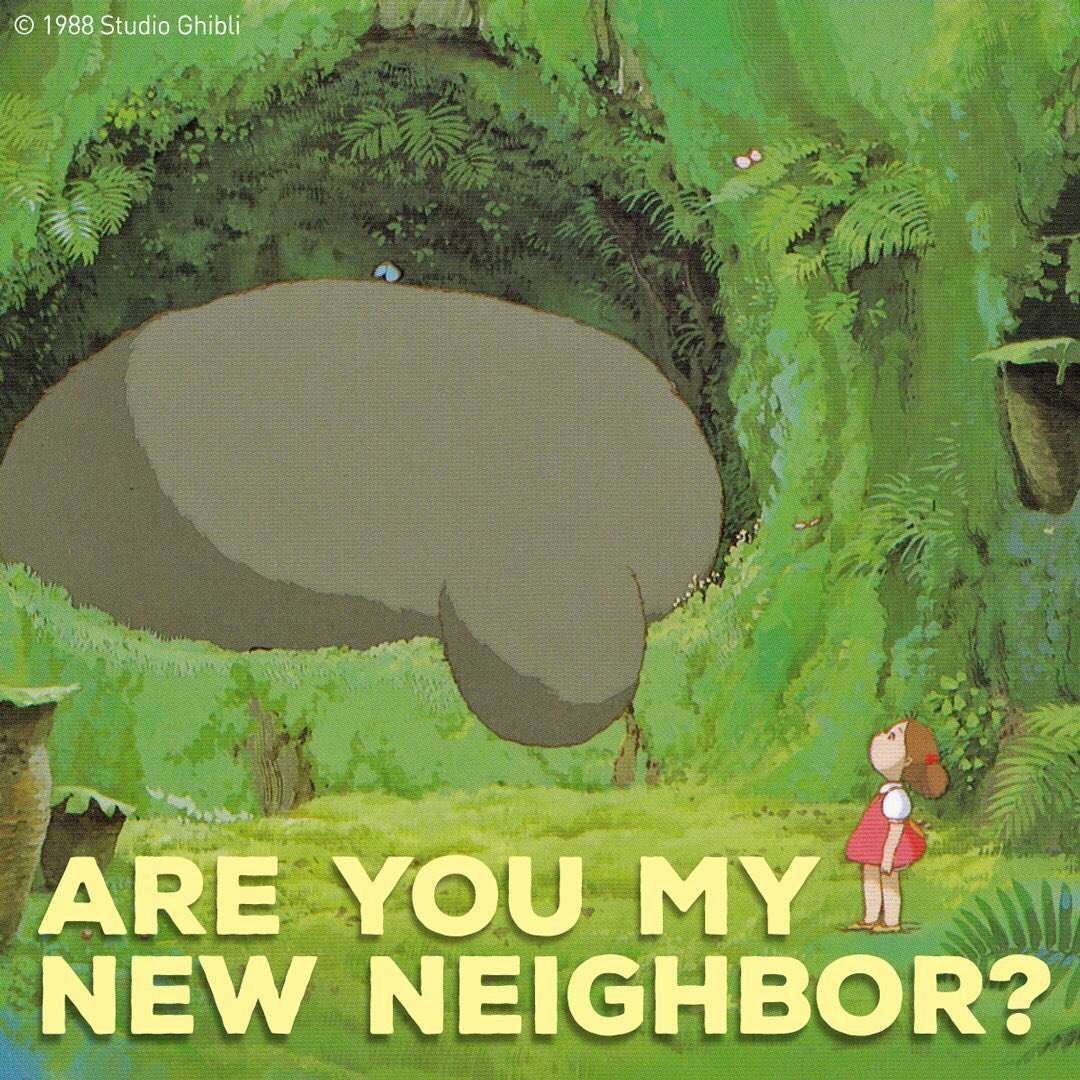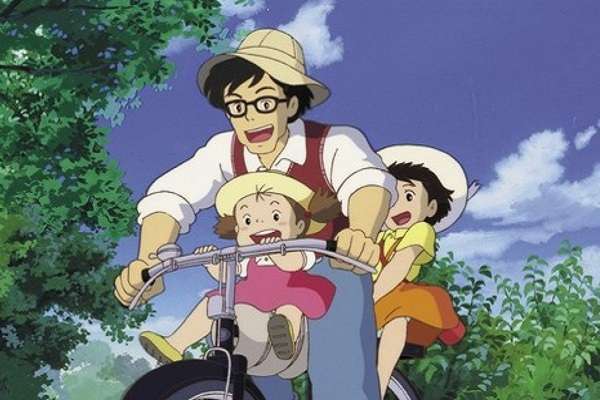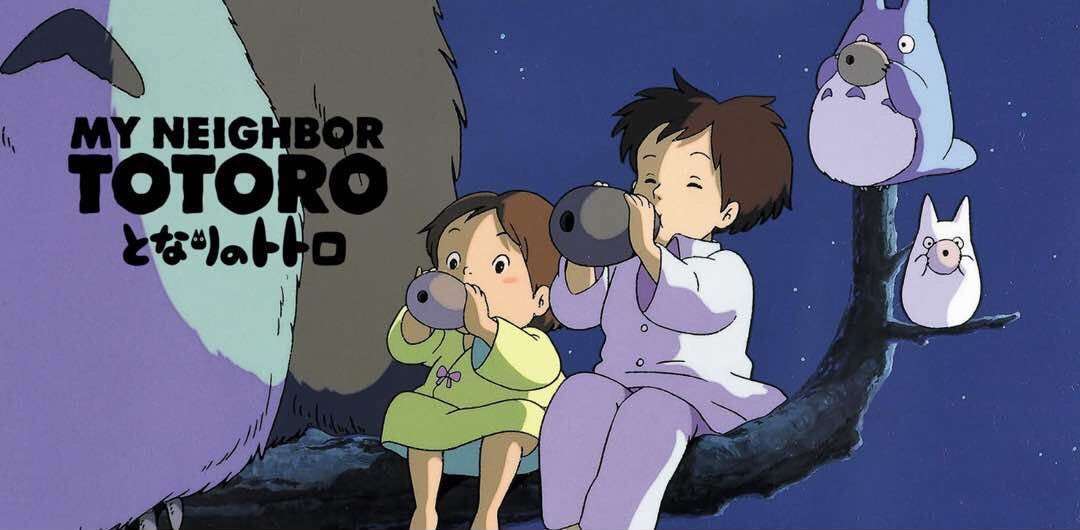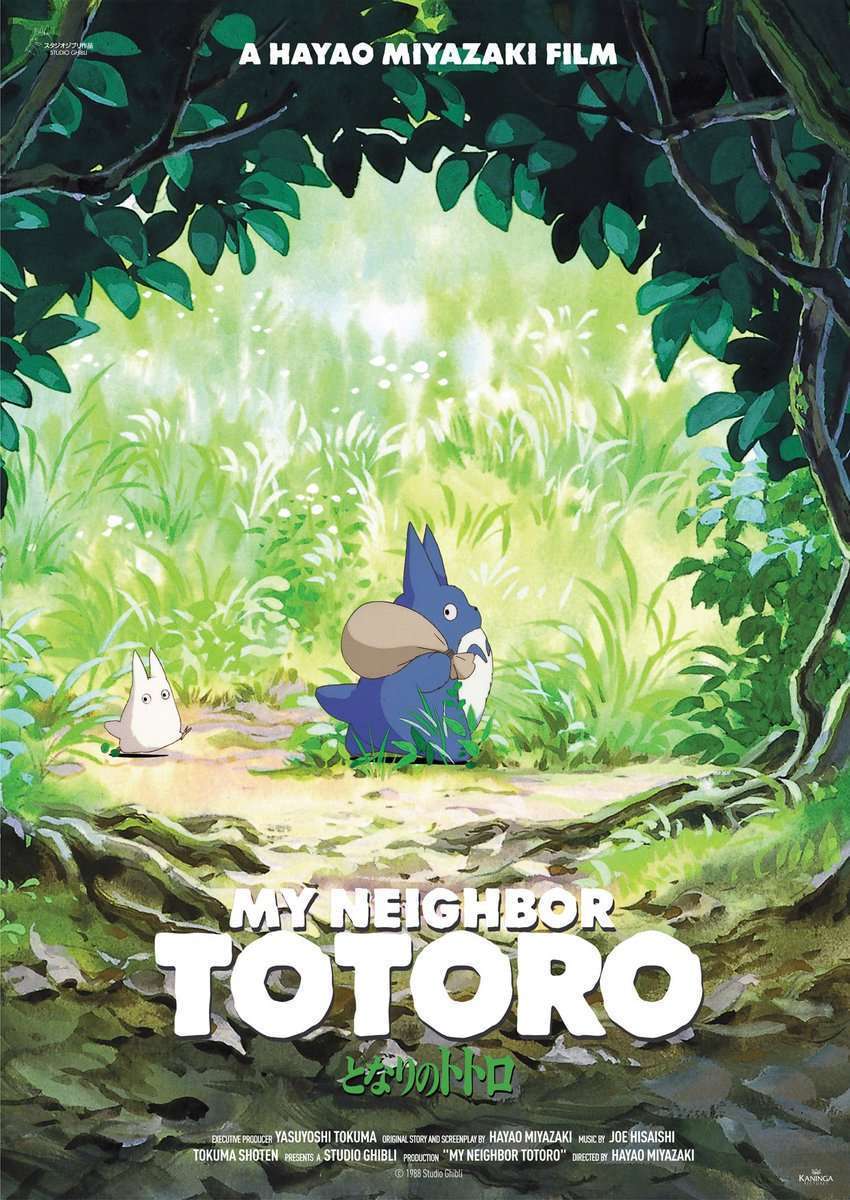As a part of Studio Ghibli film screenings in Indonesia, My Neighbor Totoro from director Hayao Miyazaki is selected to be shown in the month of May. Originally released in 1988, this old film offers a different and humbler viewing experience from epic action and adventure features that crowd the cinemas, especially with the burgeoning of Hollywood superhero films in the past decade.
The film follows Satsuki and Mei, two sisters who are moving to an old house in the countryside with their father. Their father is an archaeologist at a university in Tokyo, while their mother is undergoing treatment at a hospital for an unspecified illness. Exploring their new surroundings, Mei and Satsuki encounters and befriend a mysterious being that Mei refers to as Totoro, presumably some kind of guardian spirit that resides in the enormous camphor tree near their home.

Coming directly after Hayao Miyazaki’s first Ghibli oeuvre, Castle in the Sky (1986), My Neighbor Totoro is a completely different work from it, and also from Miyazaki’s preceding work Nausicaä of the Valley of the Wind (1984). Whereas Nausicaä and Castle in the Sky are grand sci-fi adventures with plots that involve saving the world from war and destruction, Totoro lacks such grand design in its narrative. Indeed, if only seen on the surface, the film could seem like it’s aimless, without a specific goal to accomplish, and some people may feel confused regarding what the story is about because of it.
My Neighbor Totoro largely simply follows the sisters’ lives as they run around from one place to another (there’s a lot of running shown in the film), and do one thing after another playfully. Plotwise, all of those doesn’t appear to produce major consequences. That doesn’t mean the film is plotless, but they are so fragmented into small stories and little adventures that makes the film appears as if it is a collected vignettes of daily life. Even the ending, coming after the sisters passed through moments of strong emotional distress, feels like just another day has ended, poised to segue into another day even though the viewers don’t get to see it.

Totoro is the subject of the film’s title, but it’s not accurate to say that the film is about Totoro. The sisters are not obsessed in investigating Totoro, its origins, its purpose, or how its powers work. The organized obtainment of such knowledge imply mastery and control, and the film rightfully avoids developing the sisters’ relation to Totoro in such manner. The sisters simply accepts Totoro as something that happens to live around in their neighbourhood, and may happen to cross paths with them from time to time, a “neighbour,” as the title suggests. They cemented their relation with Totoro through simple, mundane act of kindness, lending an umbrella, and Totoro gives back a lot to them in return. Such understanding of Totoro as a friendly neighbour allows the film to preserve Totoro’s magic and wonder. Without thoroughly investigating Totoro into systematic knowledge, the sisters can continue to be awed by the magic that Totoro brings.

Despite a lack of specific central conflict or goal, My Neighbor Totoro is not meaningless. There is subtle and delicate growth as the sisters enrich themselves with the emotions and memories of their new living surroundings. Wind are featured heavily in Totoro, and it would be accurate to say that the film is unbridled like the wind it features. By eschewing the definite structure of grand narrative like Castle in the Sky, the story and the sisters are free to breeze around playfully like the wind through rich and colourful experiences (Satsuki even proclaimed while playing with Totoro at one point that they are “becoming the wind”).
Just like how the wind can vary from breezing gently to storming harshly, the emotions that the sisters went through vary from the joy and thrill of discovery, even if it’s in the simple things; reveling in the sweet warmth of a family; awed and comforted by Totoro’s magical and friendly existence; to the fear of losing loved ones and the frustration of not knowing what to do. The viewers then, ought to let themselves carried away by their wind, curious where it will take them next, not knowing what will happen next, and feel along the mood and emotions of the film and the characters.
It is also worthy to note that there is great reverence for trees displayed in the film. This reverence is expressed not only through the presence of enormous trees drawn in loving detail, but also with the wealth of lifeforms that inhabit them, through the rustling of leaves from the wind and rain, and through the kind of rustic, mystical music that accompanies their presence. This reverence continue from the portrayal of trees in Nausicaä and Castle in the Sky, as cradles that nurture life. While the sisters roam around freely like the wind, the trees provide a steady and reliable abode to return to. That is a common vision in Miyazaki’s films; to soar but remain grounded and not losing oneself in hubris.
My Neighbor Totoro can be a deceptively simple film (it also happens to be one of the shorter Miyazaki film, compared to Castle in the Sky or Spirited Away). It can be difficult to get into the film if one is stuck to rigid preconceptions for definitely structured plot in a story. But if you are willing to shed such preconceptions, the wind will take you through a wealth of colourful and magical small experiences. Its richness can definitely rival such grand adventures like Castle in the Sky.
My Neighbor Totoro is shown in Indonesia from 1 to 7 May 2017 at 21 Cineplex and CGV Cinemas as a part of the World of Ghibli Indonesia event. Information regarding the schedules and tickets for the films screened in this event can be sought at the official website http://www.worldofghibli.id/.
The Indonesian Anime Times | by Halimun Muhammad









